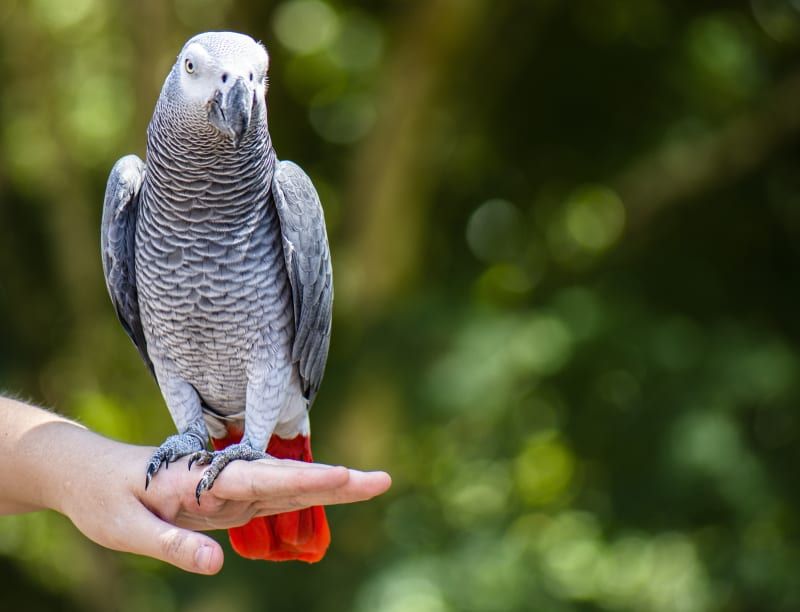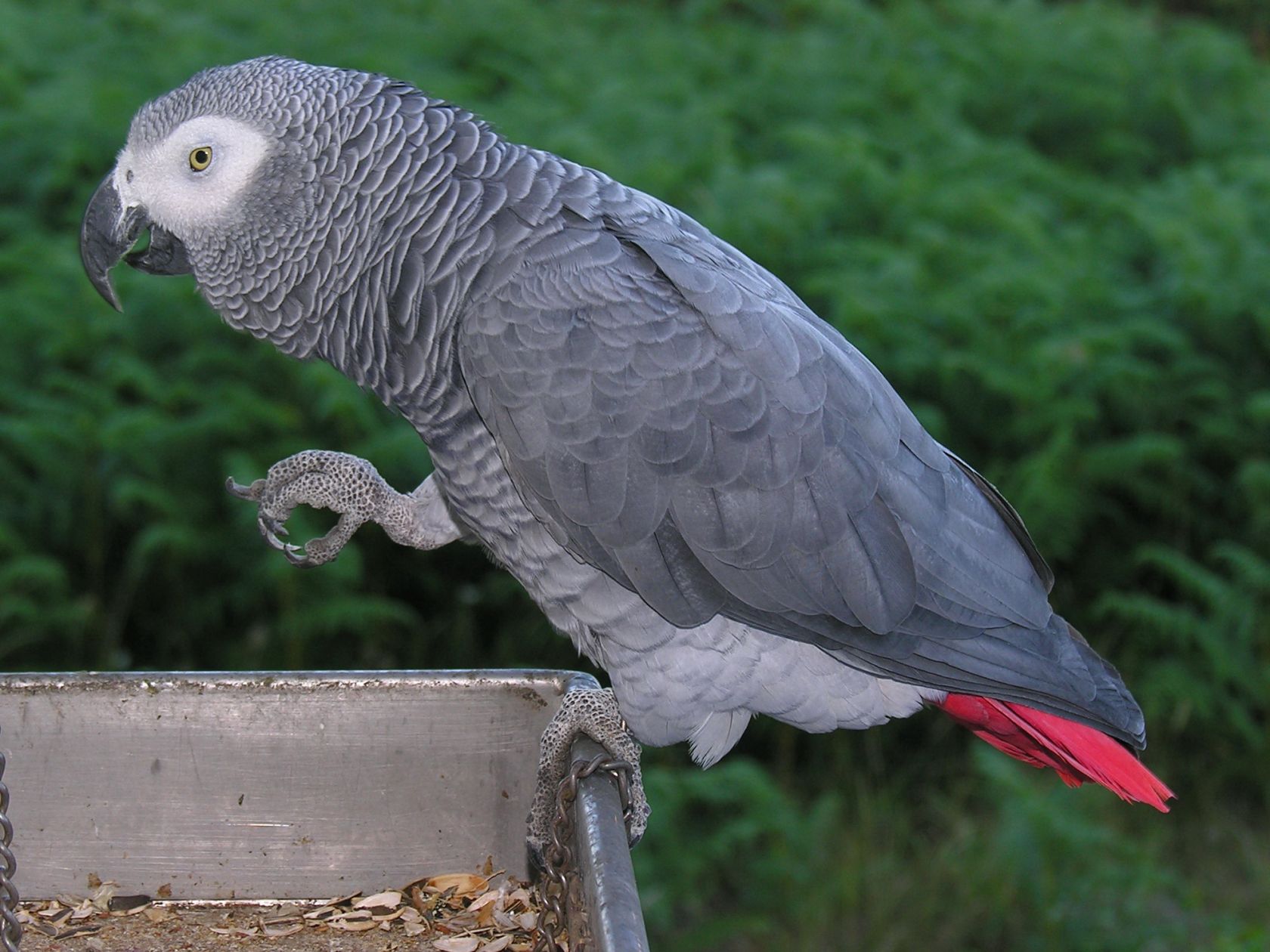A lot of people keep birds in cages as pets, and one of them, the African Grey Parrot, is now threatened throughout much of their natural range due to extensive deforestation, along with illegal trapping causing bird population collapses in some countries, and is now registered as Endangered on the IUCN (International Union for Conservation of Nature) list. Current estimates for the global population are uncertain, with populations decreasing worldwide.
Are African Greys aggressive?
African greys as pets have environmental and developmental needs that are often misunderstood by their owners. If left unaddressed, behavioural and physical problems arise, and can be ruthlessly destructive if left alone too much. I knew someone who had one called Mabel, who unexpectedly sliced through her lip one day when she put her face too close. Personally, I think aggression can be justified just by being caged, but that’s just my opinion.
Why are they so expensive?
African Greys are costly when compared to other parrots, because the actual cycle of acquiring legitimate responsibility for these uncommon parrots is expensive. The level of commitment for keeping an African Grey is huge, while needing long-term support due to their average life span of 40-80 years. The cost of an African Grey parrot can vary, but generally ranges from €1,210 to €3,000, with prices potentially higher depending on the bird's age and specific characteristics.

It is possible to own an African Grey Parrot in Portugal, but it's important to understand the legal and practical requirements. The African grey parrot is listed on CITES Appendix II (Convention on International Trade in Endangered Species of Wild Fauna and Flora), requiring proper documentation for legal ownership and trade. It's crucial to ensure the bird was captive-bred and that the breeder provides the necessary paperwork, or potentially other paperwork, depending on the origin of the bird.
Talkers
These parrots are widely known for their exceptional mimicking abilities and are often considered the best talkers among all parrot species. They can learn a large vocabulary of words and phrases, and they can mimic human speech with remarkable accuracy, even using words in context. A colleague of mine had one that mimicked the sound of the toilet being flushed, which was a bit disconcerting when there was no one else home!
To teach an African Grey parrot to talk, you would need to repeat simple words and phrases in a positive and engaging manner, starting with easy words like ‘hello’ and pair them with actions or treats to create positive associations. Patience and a nurturing environment are key, as not all parrots will become talkative, but consistent efforts can encourage their natural mimicry skills.

Do they know what they are saying?
Generally, no, but some professionally-trained parrots have learned to understand what they're saying. One such bird was an African Grey called Alex. He was the subject of a thirty-year experiment by animal psychologist Irene Pepperberg, initially at the University of Arizona. His name, Alex, was an acronym for Avian Language EXperiment, and she acquired him at about a year old, and their unique relationship helped in her understanding of animal minds. Alex's accomplishments supported the idea that birds may be able to reason on a basic level and use words creatively.
Pepperberg said Alex could identify 50 different objects and recognize quantities up to six; that he could distinguish seven colours and five shapes, and understood the concepts of ‘bigger’, ’smaller’, ‘same’, and ‘different’. Alex showed surprise and anger when confronted with a non-existent object or one different from what he was expecting hidden during the tests. If the researcher displayed irritation, remarkably, he would say ‘I’m sorry’! If he said ‘wanna banana’, but was offered a nut instead, he would stare in silence, take the nut, but possibly throw it at the researcher before requesting the banana again. Sadly, he was found dead in his cage on September 6, 2007, at age 31, possibly caused by a heart attack or a stroke.
I find this concept amazing. But why not? Other animals learn responses – not necessarily verbal – and dogs are good at it, especially for rewards!
Marilyn writes regularly for The Portugal News, and has lived in the Algarve for some years. A dog-lover, she has lived in Ireland, UK, Bermuda and the Isle of Man.
















